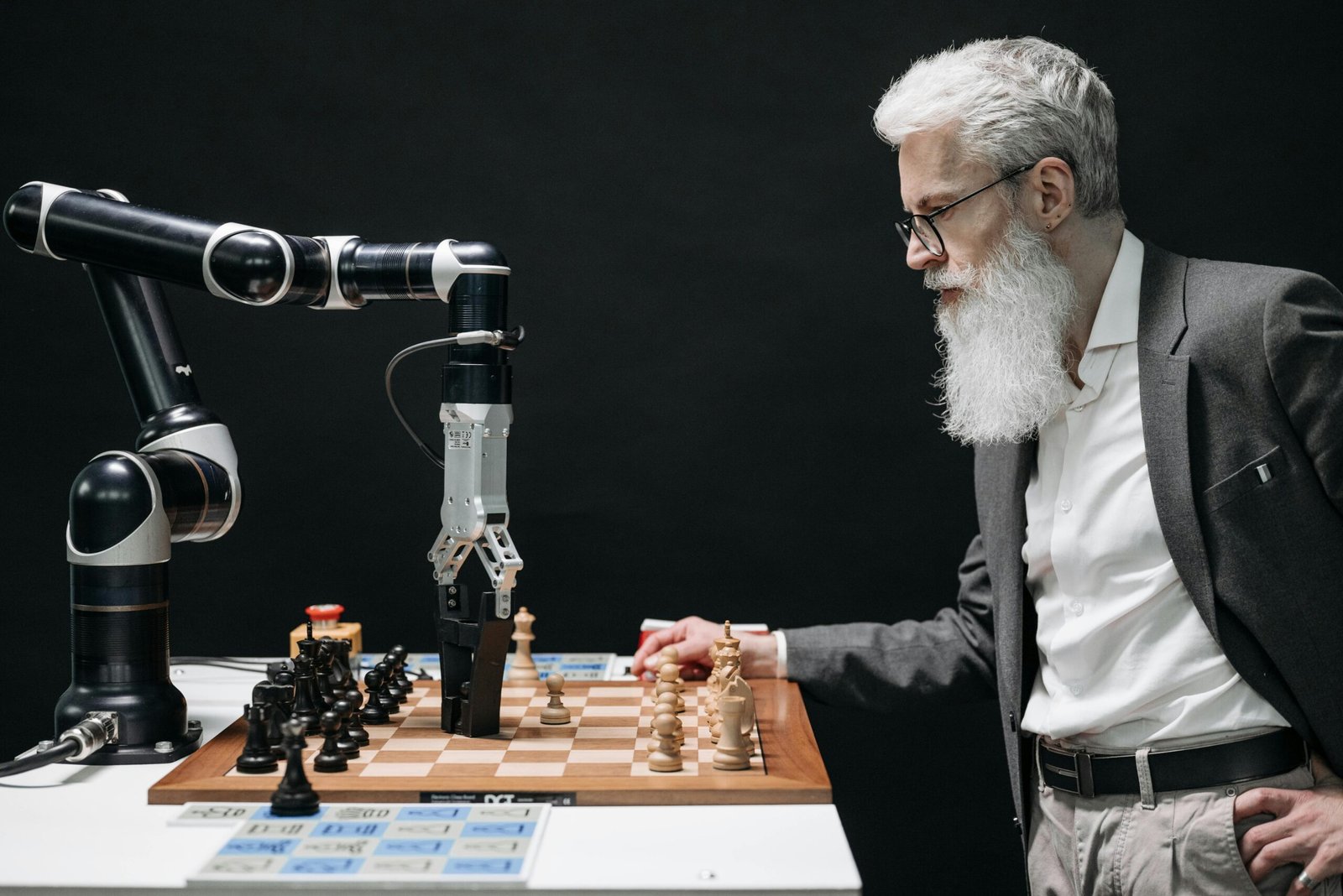Artificial Intelligence (AI) is no longer a futuristic concept — it’s already here, influencing everything from how we shop and learn to how businesses operate and compete. As AI technologies grow more powerful and accessible, they are transforming the global workforce, automating tasks, and opening up entirely new economic opportunities.
For companies across the European Union and beyond, understanding the impact of AI is essential not only to stay competitive but to thrive in a rapidly evolving digital economy.

Automation: Threat or Transformation?
It’s true that AI is automating many routine and repetitive tasks. Jobs that rely heavily on data processing, pattern recognition, or rule-based decisions — such as administrative roles, basic customer service, or manual data entry — are already being partially or fully automated.
However, history shows us that every wave of technological change also creates new roles and industries. While AI may replace some functions, it will enhance or enable many others. In fact, according to the World Economic Forum, AI is expected to create 97 million new jobs globally by 2025, even as it displaces others.
The key shift is this: AI is not just about replacing labor — it’s about augmenting human capabilities. Employees who learn to work alongside intelligent systems can increase their productivity and creativity, leading to entirely new ways of delivering value.

Sector by Sector: How AI Is Changing the Game
1. Healthcare
AI is helping doctors diagnose diseases earlier through predictive analytics and image recognition. Chatbots assist patients with basic inquiries, and drug discovery is being accelerated by machine learning. While AI won’t replace doctors, it’s becoming a powerful partner in patient care.
2. Retail and E-commerce
Personalized recommendations, smart inventory systems, and AI-driven chat support are now standard in online retail. These tools enhance customer experience while streamlining operations behind the scenes.
3. Manufacturing
Predictive maintenance, AI-enhanced robotics, and intelligent quality control are revolutionizing factory floors. Human workers are still essential — but increasingly in supervisory and technical roles.
4. Finance
AI handles fraud detection, automates transactions, and powers algorithmic trading. Fintech companies are using AI to deliver faster, smarter, and more secure services to consumers and businesses alike.
5. Education
AI-driven adaptive learning platforms tailor content to each student’s pace and needs. Teachers are using analytics to identify learning gaps, allowing for more personalized instruction and improved outcomes.
6. Marketing & Creative Work
AI tools can now generate content, analyze audience data, and automate ad targeting. Rather than replacing marketers and designers, these tools help teams work smarter and scale creative output.

Skills and Jobs of the Future
As AI automates lower-level tasks, the demand for higher-level cognitive and interpersonal skills is rising. Skills such as:
- Critical thinking
- Emotional intelligence
- Strategic decision-making
- Creativity and innovation
- Data literacy
- AI and tech fluency
These will define the most valuable employees of the coming decade. New roles such as AI ethicist, prompt engineer, machine learning trainer, and automation strategist are already emerging, especially within forward-looking companies.
For businesses, this means investing in training, upskilling, and fostering a culture of adaptability. The workforce of the future will be hybrid — a collaboration between human and machine intelligence.

Business Opportunities in the Age of AI
AI doesn’t just change how businesses operate — it creates entirely new business models. Startups are emerging around AI-driven diagnostics, legal tech, intelligent logistics, and even AI-enhanced farming. Companies that learn to harness AI can:
- Deliver better customer experiences
- Reduce costs through automation
- Innovate faster than competitors
- Expand into data-driven services
- Scale operations with leaner teams
AI offers small and medium-sized enterprises (SMEs) a unique chance to punch above their weight by leveraging smart tools — many of which are now affordable and user-friendly.
But capitalizing on AI begins with a solid digital foundation.
Final Thoughts: Prepare Now, Stay Relevant Tomorrow
Artificial Intelligence is here to stay. While it brings disruption, it also unlocks extraordinary potential for businesses ready to embrace change. The companies that thrive will be those that adopt AI thoughtfully, invest in human potential, and communicate their evolution clearly to customers and partners.
One simple, strategic step is to ensure your business has a professional and future-ready online presence. A well-designed website acts as a central hub for your brand, supports your digital transformation, and helps you stand out in a crowded AI-powered world.
If your company is preparing for this future and needs a digital upgrade, visit Rakuzan.eu to explore how a custom-built website can support your growth in the age of AI.
Disclaimer: This article is for informational purposes only and does not constitute financial, tax, or investment advice. Readers should consult with a licensed professional before making any financial or business decisions.





